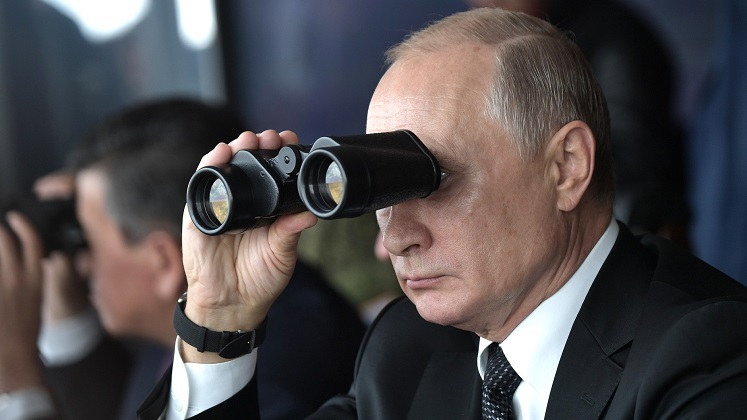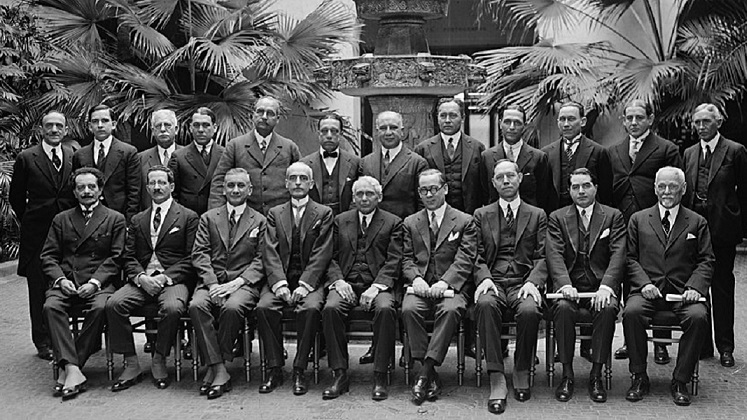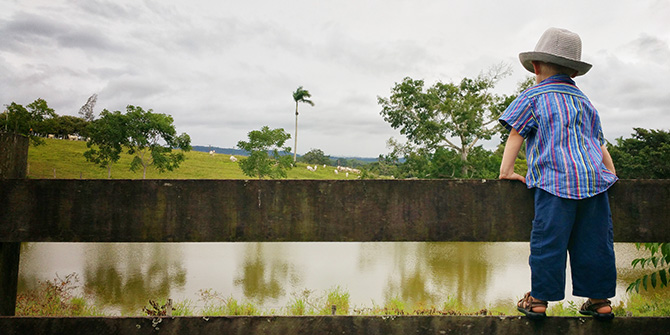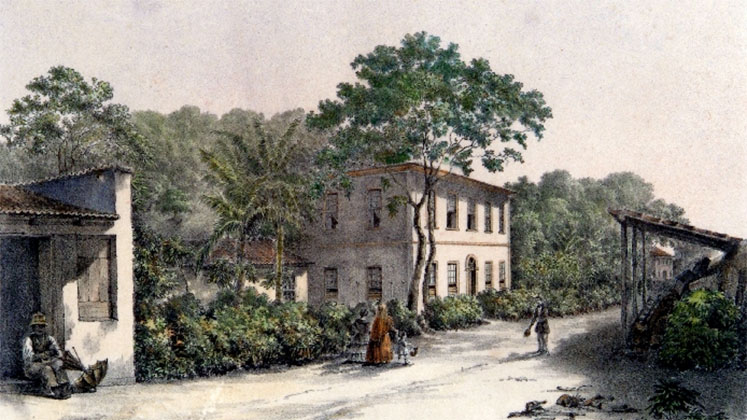Since the beginning of the 21st century, Russia began to recover and expand its presence in Latin America. But the region is heterogeneous, and Russia has not been related or allied in the same way with all countries. Still, it is important to determine how likely they are capable of consolidating illiberal alliances in the continent, Armando Chaguaceda (El Colegio de Veracruz) and Adriana Boersner Herrera (University of South Carolina Aiken) argue.
This is a shorter version of the article published in Spanish by Foreign Affairs Latinoamérica.
Lee este artículo en español
The Russian invasion of Ukraine has produced significant geostrategic changes worldwide. One of these changes has been the alliances of some countries with Russia and their dependence on Moscow. Although Latin America is a region made up of countries with varied historical, political, economic, and social trajectories, it has gained geostrategic relevance in the objectives pursued by Russian foreign policy since the beginning of the 21st century. The region’s diversity has marked how each country has reacted to the invasion of Ukraine, depending on the relations it has had with Russia over the last 22 years and on the government’s liberal and illiberal features.
Autocratic cooperation, illiberal confluence
The world of 2022 shows an increase in cooperation between autocratic states, a phenomenon analysed by experts such as Kurt Weyland, Thomas Ambrosio, and Rachel Vanderhill, with the common goal of rolling back the political model in competition: democracy. Some analysts think this autocratic cooperation is a process focused on maximising the objectives of the elites than promoting specific ideological or axiological components. However, it seems possible to detect there is more than mere economic calculation or geopolitical interest in this autocratic cooperation. There are immediate or long-term goals, ideological or pragmatic factors, and tactical or strategic objectives.
Global consolidation of capitalism and questioning of liberal hegemony is taking place in this decade. The world returned to being as at the beginning of the 20th century, a place with more or less expansive markets, with variably strong and sovereign States, but in which —unlike what was believed in 1989— the freedoms to vote, protest and monitor power were not part of the life of all the people.
Cooperation between countries with dictatorial regimes has been understood from two points of view. First, it is understood that two or more authoritarian regimes cooperate because they want to impose an autocratic normative vision. The second is pragmatic, and it is considered that no ideas or values support cooperation between authoritarian regimes, which cooperate to maximise benefits. The two visions are not mutually exclusive but complementary if we analyse the presence of Russia in Latin America since the beginning of the 2000s.
The pragmatic dimension
In the conception of Russian foreign policy, Latin America is part of increasing interest in promoting Russia’s international presence and trade relations with the region. That approach has focused on four axes or areas.
The first area is economic and commercial, in which Russia employs various means, such as trade agreements, discounts on exports, and relief of certain debts. The second axis is political, in which the Kremlin rewards allies and politicians from various countries while creating and strengthening kleptocratic networks with Russia’s financial and political elite. The third has to do with the computer space and the dissemination of narratives favourable to the Kremlin and the politics of Vladimir Putin. The goal is to gain support for Russia’s international presence and undermine the support of countries with liberal democratic governments. Finally, on the fourth axis, the military, Russia takes advantage of its arms industry to strengthen ties with clients or countries it sees as safe allies. These four axes have been essential to understanding the pragmatic cooperation between Russia and Latin America and the benefits it brings.
In general terms, the leading Latin American sectors that attract Russian investment are the exploitation of natural resources, information technology, and the automotive, nuclear, and aerospace industries. Russian companies’ principal assets in exploiting natural resources go to the bauxite mines in Jamaica, Guyana, and Peru, as well as to the projects of Gazprom, Lukoil, and Rosneft in Argentina, Bolivia, Brazil, Cuba, and Venezuela.
Today, Argentina, Brazil, and Mexico are the most important markets for Russia. These three countries are members of the G-20, as well as Russia. In the case of Brazil, together with Russia, is part of the BRICS (Brazil, Russia, India, China, and South Africa). In addition, both Mexico and Brazil export products that Russia needs, such as cane sugar, soybeans, coffee, meats, mechanical devices from Brazil, and passenger cars, telephones, malt beer, and Mexican sugar. Bilateral trade has increased significantly since the beginning of the 21st century, especially with Brazil during the presidency of Luiz Inácio Lula da Silva and in the early years of Dilma Rousseff. However, that trade remains marginal compared to Russia’s trade with other parts of the world.
With Putin coming to power in 2000, the political elite in Moscow gradually returned to the idea of creating opportunities for Russia and projecting its influence in the Western Hemisphere, including a more significant presence in Latin America. The diplomatic and political ties that began to be cultivated with certain governments took advantage of the tide of political populism in the region, the anti-American discourse of populist leaders, and the defence of a multipolar world allowed Russia to get closer to certain Latin American countries, including Cuba, Nicaragua, and Venezuela.
In addition, Russia has discovered corruption as a critical factor in motivating and consolidating political relations in Latin America and other regions like Africa. Russian oil companies have prioritised the participation of various projects in Venezuela, and Russian-Venezuelan companies have been created, causing embezzlement. According to the Corruption and Organized Crime Complaint Project portal, since 2002, the Venezuelan state oil company, Petróleos de Venezuela (PDVSA), has been involved in various corruption schemes with Russian companies and companies from other countries, which have paid bribes in exchange for preferential treatment.
The normative dimension
Traditionally, the ideological polarity has opposed left and right according to different notions of human nature and social order, social justice, and the market. After the defeat of the Soviet bloc, liberal democracy offered a regime in which democratic lefts and right-wings would accommodate themselves. Even if they opposed values and public policies, they would coincide in defending an open society and a pluralistic order. However, as Ivan Krastev and Stephen Holmes have pointed out, an illiberal trend has since defiantly gained strength.
The illiberal phenomenon results in a flexible and encompassing worldview of actors, movements, and regimes opposed to plurality in the post-Cold War world. A model of a leader and people is defended without intermediary institutions, protectionism and oligarchic and patrimonial capitalism are promoted, an essentialist definition of a nation is privileged and political language is redefined with terms such as sovereignty, interference, and democracy to transfigure political actions. Russia and its main Latin American allies fit this model.
From this perspective, autocratic promotion can be understood as the diffusion of ideas, practices, and structures that are inherently interdependent from one social system to another. This includes media, academic and cultural interactions, and producers of ideology, which are conditioned by actors with explicit political objectives. Given the relative ignorance of the purposes, modalities, and effects of authoritarian diffusion in Latin America, it is pertinent to pay attention to the contribution of the Russian presence (particularly the synergies of practices and narratives with allied governments) to the permanence and legitimisation of leadership and authoritarian regimes in the region.
The illiberal ideological substrate prevails today in the political agendas of various governments in Latin America, especially the so-called Bolivarian regimes. As a result, autocratic tendencies are reaffirmed in the emphasis placed on the principles of sovereignty and non-interference, the cornerstone of the nationalist discourses of Latin American autocracies. The Kremlin has had an interest in engaging with governments of the left and right alike, mainly if the common element is that they are illiberal. With them, Moscow has strengthened autocratic cooperation that transcends commercial links and military alliances. In Latin America, ties with the governments of Nayib Bukele (El Salvador) and Jair Bolsonaro (Brazil) are strengthened, parallel to relations with Cuba, Nicaragua, and Venezuela.
As the strongest country in this authoritarian axis, Russia has offered political, economic, and financial aid in exchange for political and diplomatic support. The justification for Cuba, Nicaragua, and Venezuela to support an ally with Russia, beyond the normative and pragmatic, has been the need to counteract the influence of the United States in Latin America and help Russia insert itself in the Latin American region as an important actor. The presence of the Russian media (RT channel and Sputnik news agency) allows the Kremlin to question the democratic model in Latin America, and it has faced relatively little opposition. The narratives used by these media repeat the official position of the Russian government, including the current support for the invasion of Ukraine. In the region, the programming of both outlets is aligned with the point of view of the illiberal forces of the political spectrum, especially the radical left. RT and Sputnik have become familiar sources of information among the Latin American population. One success factor for the progress of Russia’s strategic communication in Latin America is that the public does not capture Moscow’s interest in the region’s information spaces.

Since the beginning of the 21st century, Russia began to recover and expand its presence in Latin America. Over the years, the relationship has moved more into the political and geostrategic sphere due to the state of Russia’s bilateral relationship with the United States. As the confrontation has escalated, particularly with the governments of Barack Obama and Joseph R. Biden, the Kremlin has been accentuating its influence in Latin America, which some still consider a natural zone of the United States’ influence.
But Latin America is a heterogeneous region, and Russia has not been related or allied in the same way with all countries. This difference has been due to Russian interests and local leaders’ decisions. Brazil and Mexico are Russia’s main trading partners, while Cuba, Nicaragua, and Venezuela are Russia’s clients who have taken advantage of its credits, donations, and advantageous agreements. In return, these three countries have offered almost unconditional support to Russia in world affairs. Special attention will have to be paid to leaders who, in recent months, have abstained from voting against Russia or from condemning Russia for the war in Ukraine, such as those of Brazil and El Salvador, and to determine how likely it is that they are capable of consolidating an illiberal regime in their countries.
Notes:
• The views expressed here are of the author rather than the Centre or the LSE
• Please read our Comments Policy before commenting
• Banner image: Nicolás Maduro and Vladimir Putin in Moscow / Kremlin





